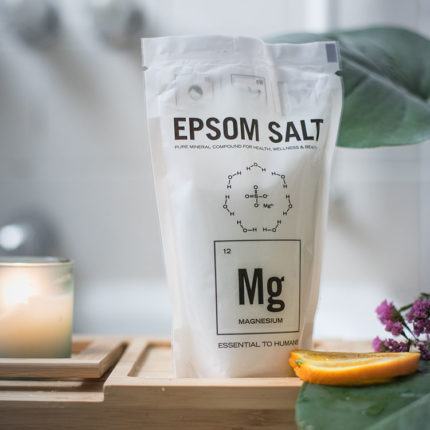One of the World’s Leading Magnesium Researchers Suggests Diet Changes, Supplements and Soaking in Epsom Salt
Most Americans do not get enough magnesium from their diets, a problem that causes a range of health risks, according to a 50-year veteran widely considered one of the world’s leading magnesium researchers.
“It’s startling, we’re in pretty bad shape,” says Burton M. Altura, Ph.D., a professor of physiology and pharmacology at SUNY Downstate Medical Center in Brooklyn, N.Y.
“We have a gigantic deficit.”
Altura has helped lead peer-reviewed research that has resulted in more than 1,000 publications in prestigious scientific and medical journals, including five articles in the journal Science. He’s also been interviewed by national and international publications, as well as radio and TV stations, and he’s helping launch a new group of scientists and physicians called the Magnesium for Health Foundation. Altura and his wife, Dr. Bella T. Altura (a research professor of physiology and pharmacology), have been named honorary co-presidents.
Altura says the lack of magnesium — which is even more severe among the elderly — could cause health issues, such as high cholesterol, atherosclerosis (where plaque builds up inside your arteries), high blood pressure, heart attacks, strokes, kidney problems, inflammatory conditions and nervous disorders.
“Magnesium is like a gatekeeper and without it, you upset the energy cycle within your body,” Altura says. “We used to say magnesium regulates more than 300 enzymes in the body. We’ve realized it’s more like 600 or more.”
Among Altura’s recommendations:
- Improving your diet by drinking bottled water rich in magnesium, consuming less alcohol, which depletes magnesium, and eating foods that contain a lot of the mineral. Examples include kelp, dark chocolate, unprocessed wheat bran, wheat germ, almonds and other nuts, molasses, tofu, brown rice, soybeans and seafood, such as oysters, sardines and scallops.
- Taking magnesium supplements.
- Soaking in Epsom salt, which is actually magnesium sulfate. Recommendations vary on how much Epsom salt to use and how often to soak; here’s what Dr. Carolyn Dean, another member of the Magnesium for Health Foundation, has suggested: “Everyone knows if you soak in Epsom salt, it soothes your body if you’re bruised or have pain,” Altura says. “That’s because the magnesium is being absorbed through your skin.”
Note: For human use, the Epsom Salt Council recommends only Epsom salt with the USP designation.





